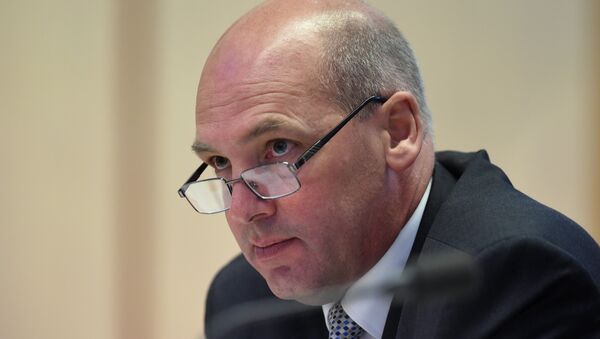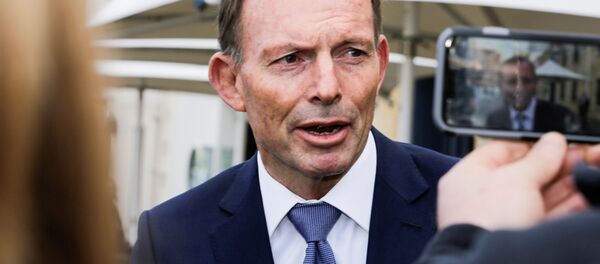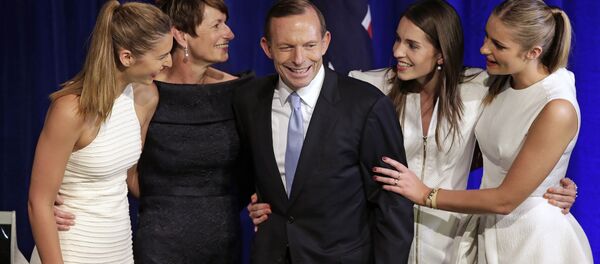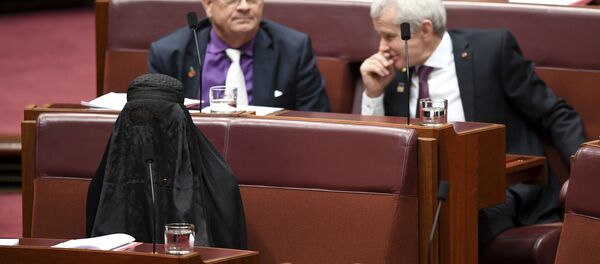Stephen Parry was born and raised on the island of Tasmania — but unbeknownst to him, his father, William, was a British citizen. "My father moved to Australia as a boy in 1951. He married my mother in 1960 and I was born that same year in Burnie. I have always regarded my late father as Australian, particularly as he undertook his national service and participated as a member of the Australian Army Reserve and voted in every Australian election since adulthood," said Parry.
When it came out that William was a British citizen, that made Stephen one as well, which cost him his office. "With a heavy heart," Parry wrote, he had to tender his resignation. "I am a British citizen by virtue of my father's birthplace."
"I wish my successor all the best and trust that she or he will continue with the reforms that I have commenced, particularly in attaining greater independence from the Executive by way of an independent funding model for all of the Parliamentary Departments."
Parry ended his resignation letter with an 1864 quote from then-US President Abraham Lincoln: "I claim not to have controlled events, but confess plainly that events have controlled me."
With the president of the Senate gone, Parry's Liberal Party may now appoint a replacement. Fellow Liberal Senator Eric Abetz praised Parry in a statement. "Stephen has not only been a valued colleague but has been an exceptional President of the Senate and chief whip before that," said Abetz. "While this is a disappointing turn, Stephen can find comfort in his stellar list of achievements for the people of Tasmania and for the Parliament."
ABC News reported that the opposition Labor Party was also said to see Parry go, as they saw him as a reasonable moderate that they could negotiate with.
Article 44 of the Australian constitution dictates that MPs may not be "a subject or citizen of a foreign power." As such, any MP found to be a citizen of a country besides Australia is ineligible for office.
In October, five MPs were forced to step down for this reason — including Barnaby Joyce, the deputy prime minister, who was also a New Zealander by descent. The crisis also engulfed four other PMs: "Brits" Fiona Nash and Malcolm Roberts, "New Zealander" Scott Ludlam and "Canadian" Larissa Waters.
The High Court of Australia ruled that lack of knowledge of the citizenship was irrelevant, and that the elections of candidates who hold dual citizenship were ineligible.
All the resignees but Joyce were senators. In the case of a senator being forced from office, their party has the right to appoint a replacement. However, Joyce's resignation will trigger an emergency election for his seat, scheduled for December 2. This is crucial, as the government of Prime Minister Malcolm Turnbull holds a one-seat majority that could conceivably been overthrown if Turnbull's Liberal-National Coalition loses the election.
The scandal has set Australian political parties into a tizzy as they desperately check the ancestries of their MPs in the fear that more could be forced out on this technicality.
Others could still be swept out as the crisis continues. Energy Minister Josh Frydenberg called claims that he had Hungarian citizenship through his mother "absolutely absurd," as she came to Australia in 1951 as a refugee of the Holocaust. "It is a baseless assertion as my mother was stateless when she and her family came to Australia post-war from the Holocaust," Frydenberg told News AU.
"It is absurd to think I could involuntarily acquire citizenship of a foreign country from a stateless mother and grandparents."
George Brandis, the attorney general, has refused to call for an audit of MP citizenship. "If someone wants to make an allegation against a member of Parliament, let them make it, but in the absence of any allegation being made against any member of parliament, because so far as I am aware none has, I don't favor some kind of witch hunt," he said.






